Fuel Tank Replacement Side
Removal Procedure
- Relieve the fuel system pressure. Refer to the Fuel Pressure Relief .
- Drain the fuel from the tank. Refer to Fuel Tank Draining .
- Raise the vehicle. Refer to Lifting and Jacking the Vehicle in General Information.
- Disconnect the vent hose at the fuel tank.
- Disconnect the filler tube hose at the fuel tank.
- Support the fuel tank.
- Remove the fuel tank straps.
- With the aid of an assistant lower the fuel tank and shield. Lower the fuel tank shield and the fuel tank to access the top of the fuel tank.
- Clean all the fuel pipe connections and the surrounding areas before disconnecting the fuel pipes in order to avoid possible contamination of the fuel system.
- Disconnect the fuel pipes (1,3) and the vapor pipe (2). Refer to Metal Collar Quick Connect Fitting Service or Plastic Collar Quick Connect Fitting Service .
- Disconnect the electrical connections at the sender.
- Remove the fuel tank and shield.
- Remove the fuel sender. Refer to Fuel Sender Assembly Replacement .
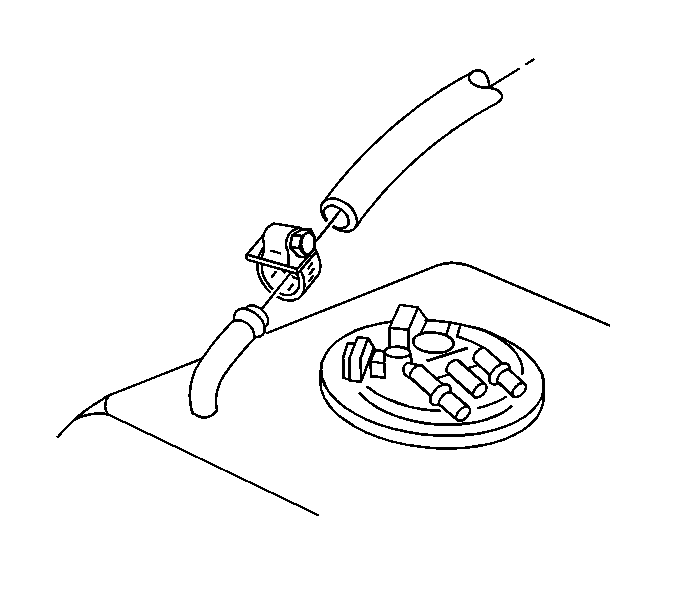
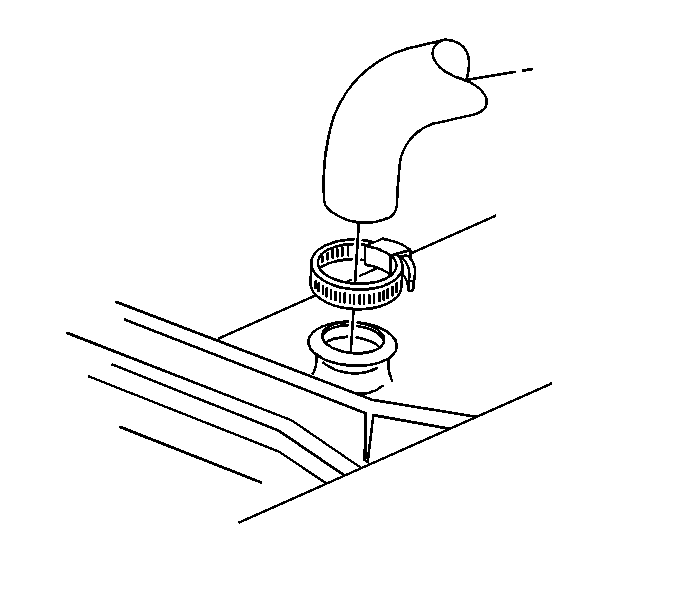
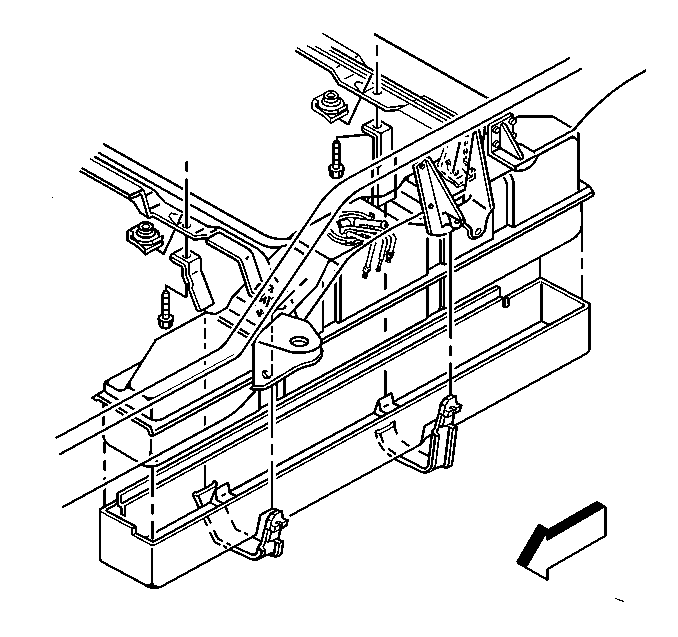
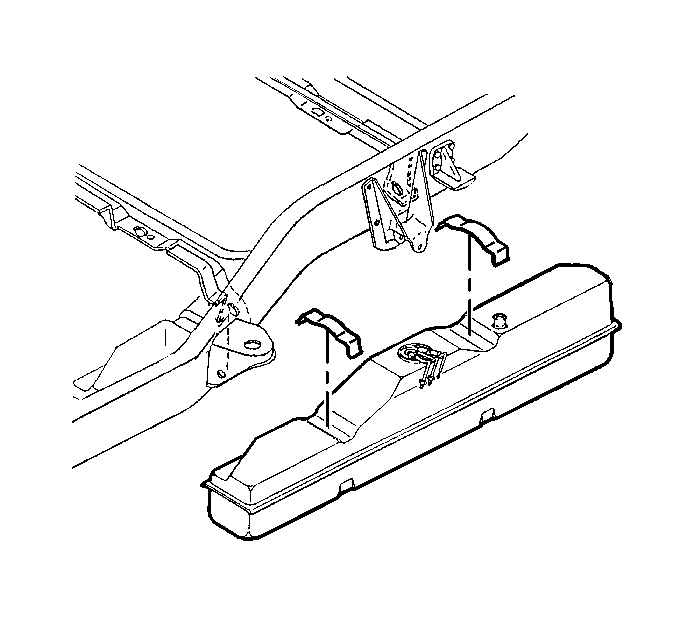
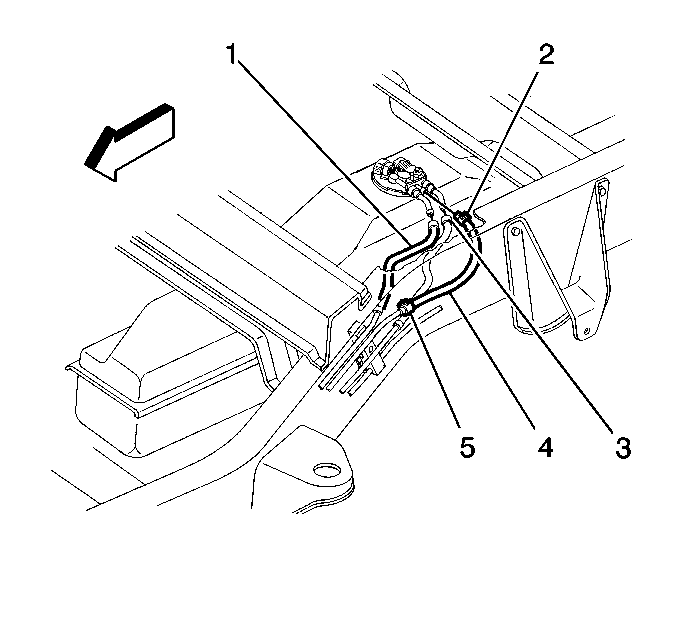
Installation Procedure
- Install the fuel tank insulators.
- Install the fuel sender. Refer to Fuel Sender Assembly Replacement .
- Raise the fuel tank.
- Connect the fuel pipes (1,3) and the vapor pipe (2) to the fuel sender.
- Connect the electrical connections at the sender.
- Raise the fuel tank and shield fully.
- Install the fuel tank straps.
- Connect the filler tube hose to the fuel tank.
- Connect the vent hose to the fuel tank.
- Lower the vehicle.
- Refill the fuel system.
- Install the fuel filler cap.
- Connect the negative battery cable. Refer to Battery Negative Cable Disconnection and Connection in Engine Electrical.
- Inspect for fuel leaks using the following procedure:
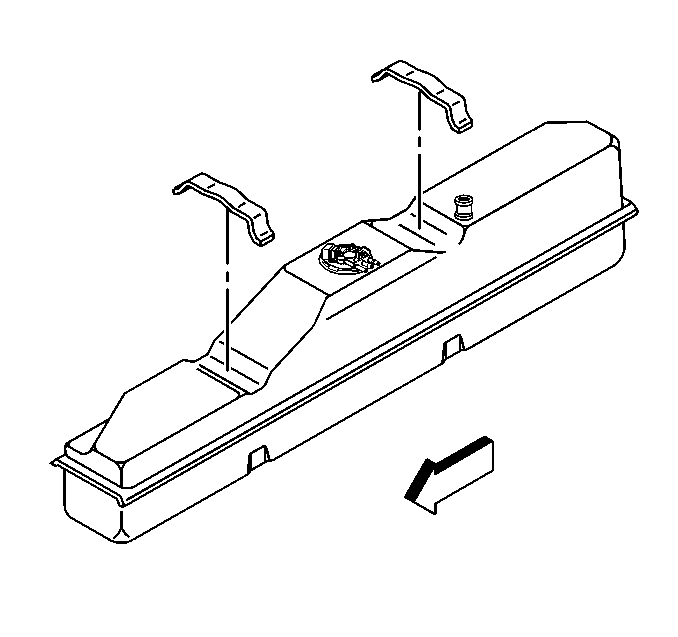



Notice: Use the correct fastener in the correct location. Replacement fasteners must be the correct part number for that application. Fasteners requiring replacement or fasteners requiring the use of thread locking compound or sealant are identified in the service procedure. Do not use paints, lubricants, or corrosion inhibitors on fasteners or fastener joint surfaces unless specified. These coatings affect fastener torque and joint clamping force and may damage the fastener. Use the correct tightening sequence and specifications when installing fasteners in order to avoid damage to parts and systems.
Important: When removing or replacing the fuel tank, the fuel tank support fasteners should never be reused. Always use new fasteners when installing the fuel tank.
Tighten
Tighten the strap bolts to 35 N·m (26 lb in).

Tighten
Tighten the clamp to 2.5 N·m (22 lb in).

Tighten
Tighten the clamp to 2.5 N·m (22 lb in).
| 14.1. | Turn ON the ignition, with the engine OFF for 2 seconds. |
| 14.2. | Turn OFF the ignition for 10 seconds. |
| 14.3. | Turn ON the ignition, with the engine OFF. |
| 14.4. | Inspect for fuel leaks. |
Fuel Tank Replacement Rear
Removal Procedure
- Relieve the fuel system pressure. Refer to Fuel Pressure Relief .
- Drain the fuel from the tank. Refer to Fuel Tank Draining .
- Raise the vehicle. Refer to Lifting and Jacking the Vehicle in General Information.
- Remove the fuel tank shield.
- Disconnect the filler tube hose (6) and the vent hose (3) at the fuel tank.
- Support the fuel tank.
- Remove the fuel tank straps.
- With the aid of an assistant lower and support the fuel tank. Lower the fuel tank to access the top of the fuel tank.
- Clean all fuel pipe connections and surrounding areas before disconnecting the fuel pipes in order to avoid possible contamination of the fuel system.
- Disconnect the fuel pipes and the vapor pipe. Refer to Metal Collar Quick Connect Fitting Service or Plastic Collar Quick Connect Fitting Service .
- Disconnect the electrical connections at the sender.
- Remove the fuel tank.
- Remove the fuel sender. Refer to Fuel Sender Assembly Replacement .
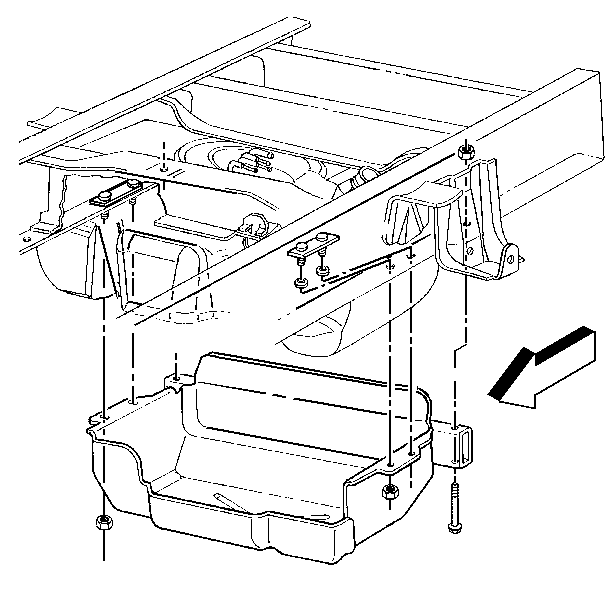
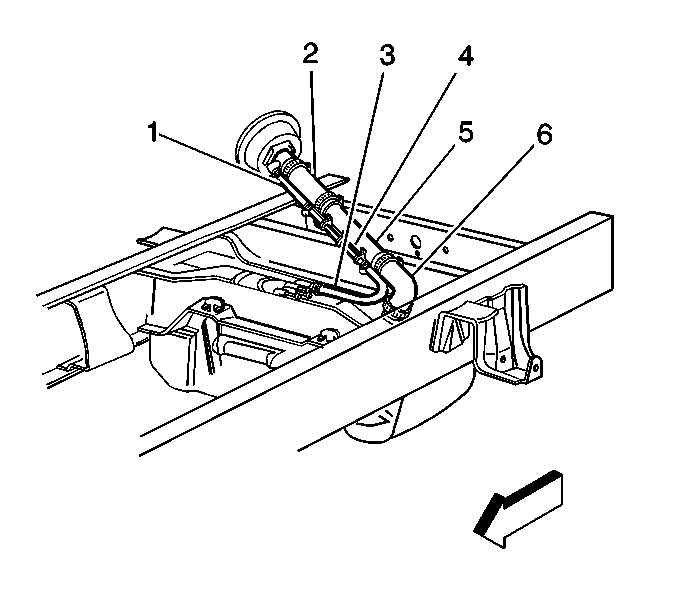
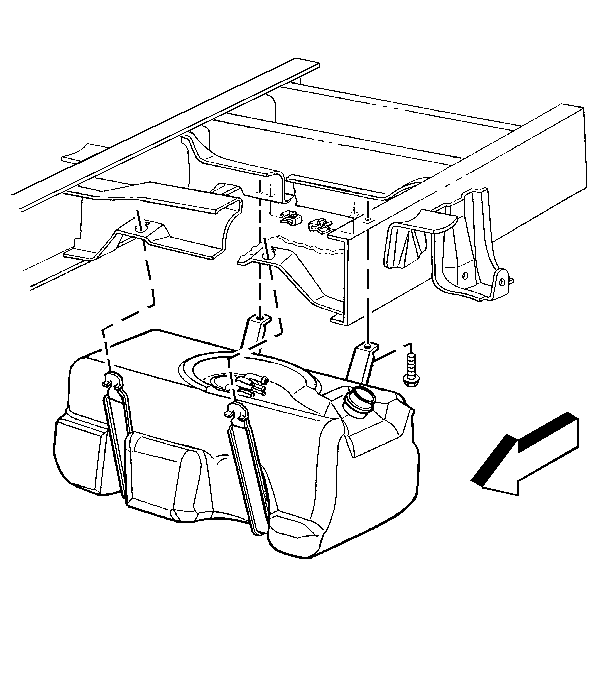
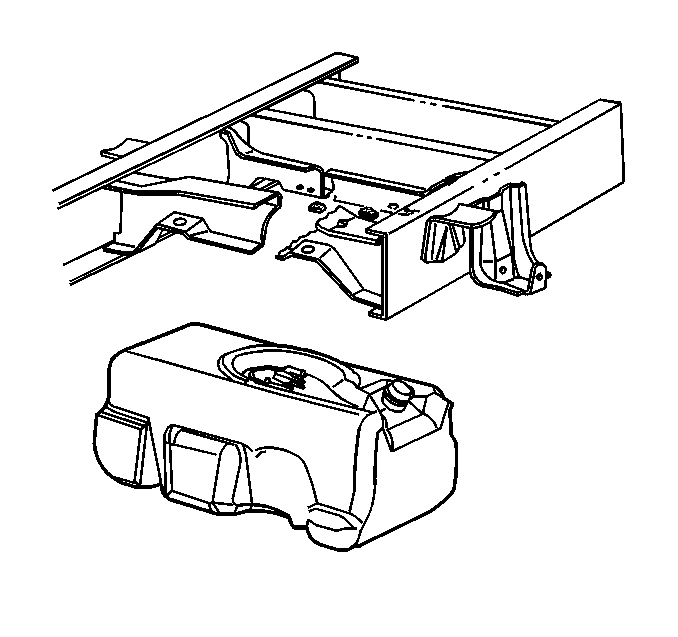
Installation Procedure
- Install the fuel sender. Refer to Fuel Sender Assembly Replacement .
- Raise the fuel tank.
- Connect the fuel pipes and the vapor pipe at the sender. Refer to Metal Collar Quick Connect Fitting Service or Plastic Collar Quick Connect Fitting Service .
- Connect the electrical connections at the sender.
- Raise the fuel tank fully.
- Install the fuel tank straps and fastening hardware.
- Install the fuel tank shield.
- Connect the filler tube hose (6) and the vent hose (3) to the fuel tank.
- Lower the vehicle.
- Refill the fuel system.
- Install the fuel filler cap.
- Connect the negative battery cable. Refer to Battery Negative Cable Disconnection and Connection in Engine Electrical.
- Inspect for fuel leaks using the following procedure:


Notice: Use the correct fastener in the correct location. Replacement fasteners must be the correct part number for that application. Fasteners requiring replacement or fasteners requiring the use of thread locking compound or sealant are identified in the service procedure. Do not use paints, lubricants, or corrosion inhibitors on fasteners or fastener joint surfaces unless specified. These coatings affect fastener torque and joint clamping force and may damage the fastener. Use the correct tightening sequence and specifications when installing fasteners in order to avoid damage to parts and systems.
Important: When removing or replacing the fuel tank, the fuel tank support fasteners should never be reused. Always use new fasteners when installing the fuel tank.
Tighten
Tighten the strap bolts to 35 N·m (26 lb ft).

Tighten
Tighten the fuel tank shield fastening hardware to 75 N·m
(55 lb ft).

Tighten
Tighten the clamps to 2.5 N·m (22 lb in).
| 13.1. | Turn ON the ignition, with the engine OFF for 2 seconds. |
| 13.2. | Turn OFF the ignition for 10 seconds. |
| 13.3. | Turn ON the ignition, with the engine OFF. |
| 13.4. | Inspect for fuel leaks. |
